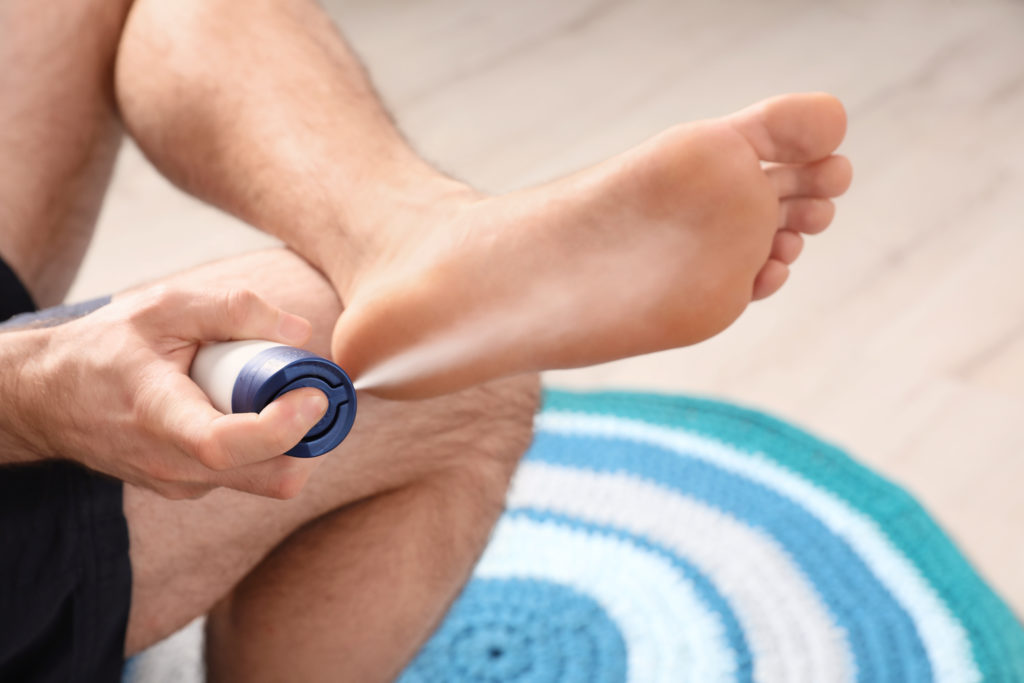Comprehensive Overview to Sweaty Hands Treatment: Proven Dermatology Methods
Comprehensive Overview to Sweaty Hands Treatment: Proven Dermatology Methods
Blog Article
Understanding the Origin Reasons of Excessive Sweating and Its Effect On Life
Excessive sweating, additionally understood as hyperhidrosis, is a condition that impacts a considerable part of the population, yet its hidden reasons and ramifications on day-to-day operating continue to be rather enigmatic. While it is frequently comprehended as a physical feedback to manage body temperature level, the triggers for excessive sweating can vary widely among individuals, incorporating not just physical aspects however emotional and additionally emotional components. In addition, the influence of this condition expands beyond simple pain, frequently affecting social communications and general lifestyle. By diving right into the root causes of hyperhidrosis and exploring its multifaceted impacts, a deeper understanding of this pervasive concern can be obtained, clarifying the complexities that individuals coming to grips with extreme sweating navigate on an everyday basis.
Physiology of Sweat Glands
The guideline of sweat production, a crucial physical process, is largely managed by the task of sweat glands dispersed across the human body. Sweat glands are classified into 2 major kinds: eccrine and apocrine glands. Eccrine glands are the most many and are discovered in almost all locations of the body. They play an essential role in thermoregulation by producing a watery fluid onto the skin's surface area, which evaporates and assists cool the body down. In comparison, apocrine glands are concentrated in locations rich in hair follicles, such as the underarms and groin, and their secretions are thicker and milky in look.
When the body temperature level climbs, either due to physical activity, heats, or emotional stress and anxiety, the anxious system sets off the sweat glands to generate sweat. This sweat is made up mainly of water and electrolytes like salt and chloride. The procedure of sweat production is important for maintaining the body's inner temperature level within a narrow, optimum variety, highlighting the vital function gland play in human physiology.
Triggers for Excessive Sweating
In comprehending the origin of excessive sweating, it is critical to determine the triggers that can lead to this physical action. Extreme sweating, likewise known as hyperhidrosis, can be triggered by numerous variables, both environmental and physiological. One usual trigger is psychological stress and anxiety or anxiousness, which can boost the body's gland to create more sweat than is required for cooling. Physical physical effort, heats, and spicy foods are also understood to cause excessive sweating in individuals susceptible to this condition. Additionally, specific medical conditions like hyperthyroidism, menopause, or diabetes can add to extreme sweating as well.
In addition, medicines such as some antidepressants, opioids, and specific supplements can likewise function as triggers for hyperhidrosis. Comprehending these triggers is necessary in handling excessive sweating efficiently - How to stop sweaty hands. By identifying and dealing with the details triggers that trigger extreme sweating in a private, medical care suppliers can develop individualized treatment strategies to ease this problem and boost the individual's top quality of life
Medical Conditions Associated
Connected with extreme sweating are various clinical conditions that can aggravate this physiological action. One typical problem is hyperhidrosis, a condition characterized by abnormally boosted sweating that goes beyond the body's thermoregulatory needs. This can show up in focal locations like the palms, soles, underarms, or face, impacting a person's top quality of life due to social humiliation and pain.
Furthermore, endocrine problems such as hyperthyroidism, diabetes mellitus, and menopausal warm flashes can also lead to too much sweating. Hyperthyroidism creates an overflow of thyroid hormones, speeding up metabolic process and setting off sweating.
Furthermore, infections like hiv, endocarditis, and tuberculosis have been linked with evening sweats, a common sign recognized to disrupt rest and influence overall wellness. These medical problems highlight the varied series of underlying aspects that can add to extreme sweating, requiring complete examination and administration by health care experts.
Emotional and Psychological Aspects

Influence On Social Communications
Too much sweating can have extensive effects on a person's capacity to involve comfortably in social interactions. The noticeable signs of sweat spots or damp patches on garments can bring about humiliation and self-consciousness, triggering individuals to withdraw from social circumstances. This withdrawal can influence partnerships, limit social activities, and hinder personal and expert growth.

Furthermore, the anxiousness and self-worth issues originating from too much sweating can affect communication and interpersonal skills. People might battle to concentrate on conversations, join Treatment for hyperhydrosis of hands group activities, or express themselves confidently. This can lead to feelings of seclusion and isolation, as social links come to be challenging to keep.
Conclusion

While it is typically recognized as a physical reaction to regulate body temperature, the triggers for extreme sweating can differ widely among people, encompassing not only physical aspects but emotional and likewise psychological elements. By delving right into the origin causes of hyperhidrosis and exploring its complex impacts, a deeper understanding of this prevalent issue can be obtained, losing light on the complexities that people grappling with too much sweating navigate on an everyday basis.
Physical effort, high temperatures, and spicy foods are also known to set off too much sweating in people susceptible to this condition. By recognizing and dealing with the specific triggers that trigger excessive sweating in a private, health care companies can create individualized treatment plans to minimize this condition and boost the person's quality of life.
Too much sweating can have extensive results on an individual's capacity to engage pleasantly in social communications.
Report this page